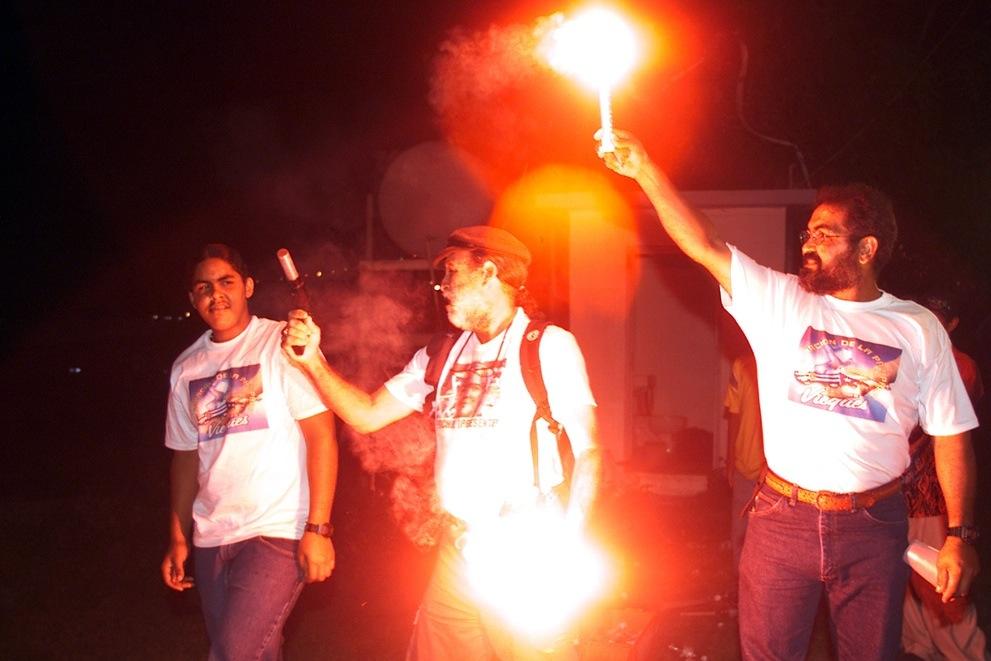US report on Vieques says there’s no cancer threat
Whether or not their campaign made people sick, the U.S. Navy was never popular in Vieques. When they left in 2003, hundreds of protestors then rushed onto the former Navy area, destroying vehicles, burning flags and attacking buildings.
For 60 years, the US Navy has used the island of Vieques, a tiny spot near Puerto Rico, as a bombing range.
And for a long time, people who live there have complained about health problems. Like cancer.
The US stopped its campaign in 2003, and issued a reported that said there was no real risk to the people there.
That was awkward, because a study by a former Puerto Rico health minister had found that the rate of cancer on Vieques was 27 percent higher than that on the main island. People on Vieques also were more likely to have illnesses like diabetes, asthma and epilepsy, according to the AP.
The study suggested these disease could be caused by a higher level of chemicals in people's bodies. But the US said there had to be lots of other reasons that those chemicals got in there.
So the US government has released a new report. Guess what they found? Per the AP:
A U.S. agency on Thursday accepted local claims that there is a higher incidence of cancer and other health ills on Vieques island compared with neighboring Puerto Rico, but said there is no proof the problem is linked to U.S. military activity.
Maybe it's mercury in all the fish they eat, the report suggested. Maybe the people should eat fish that have lower levels of mercury.
Or maybe it has something to do with this:
The Navy has said its forces accidentally fired 263 rounds of ammunition tipped with depleted uranium on the Vieques range in 1999, violating federal law.
It's hard to say.
A few years about, a lawsuit was filed against the federal government on Vieques, with 7,100 names. The island's population is only 10,000.
There's some movement to set up a hospital and a research center on the island to help mitigate that damage. But the US would have to pay for that, and it's clearly disavowing any responsibility for the heightened level of sickness the island residents have endured. So that seems unlikely.
Meanwhile, people like Hermogenes Marrero remain disappointed:
Hermogenes Marrero, a 59-year-old retired U.S. Marine sergeant living in Puerto Rico, blames his colon cancer and other ailments on toxins that he says he was exposed to while working at Vieques from 1970 to 1972.
"When the Navy says one does not become sick from that, that is not true," said Marrero, who filed a claim against the U.S. government in 2002 and is still waiting for it to be resolved.
Every day, reporters and producers at The World are hard at work bringing you human-centered news from across the globe. But we can’t do it without you. We need your support to ensure we can continue this work for another year.
Make a gift today, and you’ll help us unlock a matching gift of $67,000!
